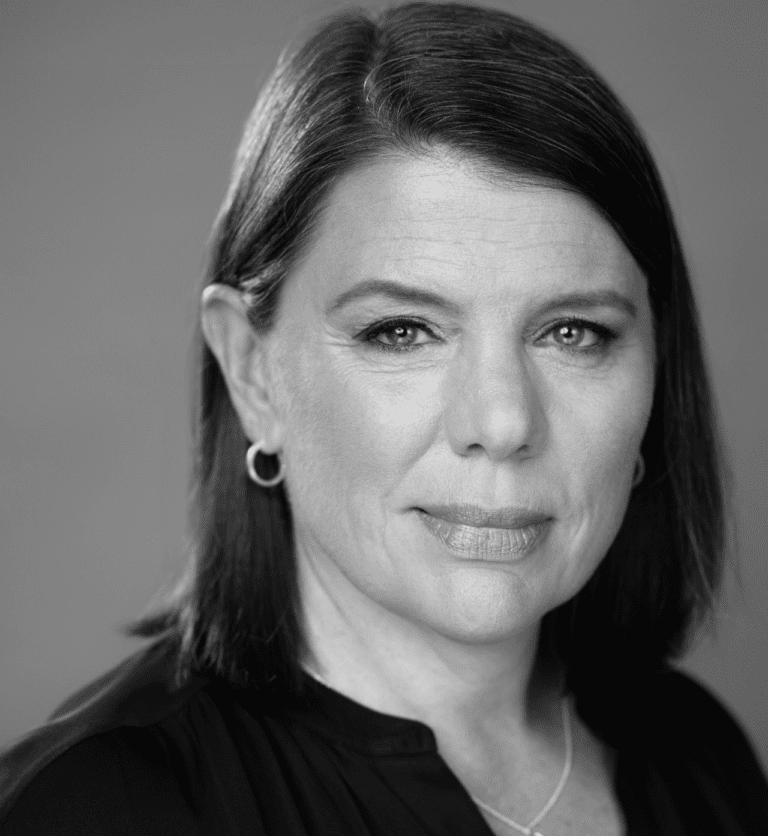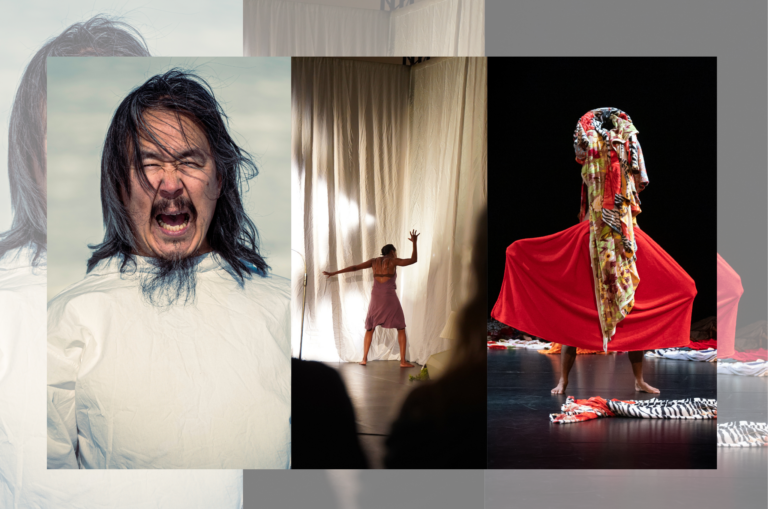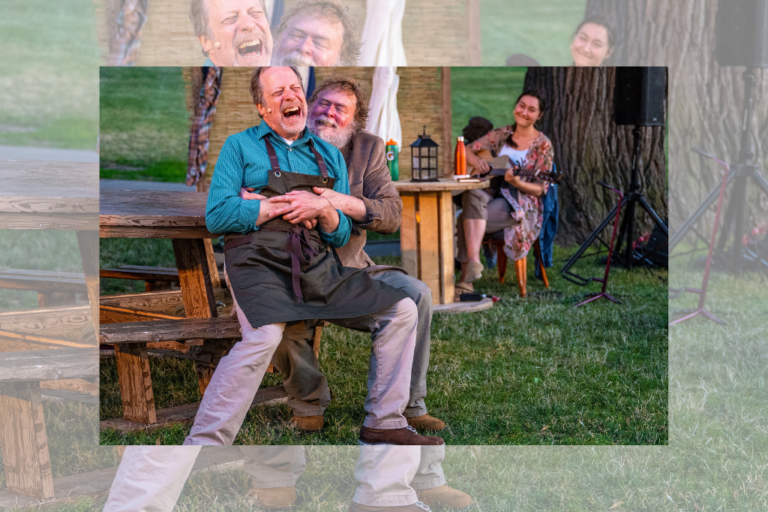“Loving, Supportive, Kind, Generous”: Remembering Stephen Sondheim in Canada
The theatre world – and the world, full stop – lost one of its leading lights on November 26, 2021, when Stephen Sondheim passed away at the age of 91. Major news outlets, as well as specialist theatre publications, were filled with tributes to and memories of the great composer. To take stock of Sondheim’s particular contribution to Canadian theatre, a number of writers and artists gathered on Zoom to talk about his influence and legacy: Performer and director Thom Allison; composer, lyricist, and librettist Leslie Arden; performer, director, and artistic director of the Charlottetown Festival Adam Brazier; retired National Post theatre critic Robert Cushman; and retired Toronto Star theatre critic, theatre director and writer Richard Ouzounian.
A shorter version of this conversation appeared in the Toronto Star on December 3. This version too has been edited and condensed for publication in Intermission.
Karen Fricker: Thank you so much for being here and I’m going to ask you, each in turn, to talk about your relationship to Stephen Sondheim – the man, if you knew him, and his work.
Richard Ouzounian: Sometimes meetings with Stephen were fraught and sometimes they were lovely. I would be talking to him extensively about a topic for an interview, but we would then stretch it out. I would be in New York and at one point, even in Connecticut, we would talk about life and art, on top of the topic in question — his many various shows. I did also reach out to him on a couple of occasions when I was directing his stuff.
In one case — Thom, don’t know if I ever told you this one — when I did Anyone Can Whistle back in 2008, I wanted to ask you to play Cora Hoover Hooper. I asked if I could do that, and he went, “No. I wrote the part for a woman, it will be played by a woman.”
(It’s interesting to note that Sondheim later proved open to shifting the gender of one of his lead characters. Marianne Elliott’s production of Company, with the central character of Bobby (male) switched to Bobbie (female), opened in London in October 2018 and on Broadway in December 2021.)
RO: I found my work with him was usually show-specific. Like, OK, we’re going to talk about Gypsy and then it would go off from there, or we’re going to talk about Passion and it would go off from there.
I think what he liked was that I always came to the table knowing the material in question upside down, but I was also always looking for the theatre ramification of it.
Thom Allison: I fell in love with Sondheim through A Little Night Music — when I was a teenager I discovered the cassette tape and was amazed. I’ve had a relationship with that show ever since.
In 2001, they were honoring Sondheim [at the World Leaders event at Toronto’s Harbourfront Centre] and I was asked to sing a number for him. I was playing the Emcee in a production of Cabaret at Theatre Calgary, and they had my understudy go on so I could fly to Toronto and sing “Finishing the Hat” for Sondheim… I mean to sing for him was the most extraordinary thing I could ever imagine.
[After my performance] I thought, if I don’t approach him, I will never forgive myself, so I went to say hello to him… and he said “Yes, I know who you are are; I was told to keep an eye out for you.” And I literally almost shat myself. I think I must have looked very shocked, and he said, I will never forget this, and I will hold it in my heart forever: “Don’t worry, you get an A.”
Robert Cushman: A friend of mine in about 1970, I suppose, asked me if I had heard the album of Company. I played the album, and I played and played and played it, and I thought I’d like to write about him; I’d like to meet him. Company was open in New York, and then it was announced for London, so I thought this is a great hook, and I persuaded the Daily or Sunday Telegraph magazine to let me interview him. I was going to go to Toronto anyway, so I stopped off in New York on the way, and by that time Follies was also open, and so I saw them both. Company was literally on its last legs, because most the original cast had moved to London. Follies was spectacular… I must admit I’ve never seen a production of that show since to equal it, for all sorts of reasons, economic and artistic.
I knocked on his door, of that fabled townhouse in Manhattan, and was politely ushered in by him and we talked and it was pleasant. I was nervous, and he was less showbiz than I imagined, and quite a challenge. We met again in London while Company was in rehearsal. On three separate occasions, we sat in the back of the stalls in Her Majesty’s Theatre and talked, and it was much more relaxed. I got much more out of him than I had originally managed to.
Very seldom did I formally interview him. I think I did one for a radio station in London when Night Music was about to open… it was just, you know, informal conversation, but it was mainly about the theatre lately, about musicals.
I feel very lucky that that relationship evolved and lasted for the long term.
I mean… to sing for him was the most extraordinary thing I could ever imagine.
Leslie Arden: It was 1989, I guess. Cameron Mackintosh had set up a chair at Oxford for Steve to give a six-month masterclass to professional writers. A friend of mine, David Malek, was in Les Mis, and one night Cameron Mackintosh came to Les Mis just to check up on it. That day I had been coaching David on something, and he said, “People say you write songs and you write musicals and I’ve never heard anything you’ve written.” I happened to have a cassette of my songs sitting on the top of my piano and I gave it to David. That night he gave the cassette to Cameron Mackintosh and said, “You might be interested in hearing what Canadians are writing.” The next morning I got a call from my agent saying, “How fast can you get to London?”
It was pretty exciting, and so I spent six months with them in London and we became friends. I’ve been able to ask his advice over the years, and whenever I’d be in New York we would get together, and whenever he’d be in my neck of the woods, we would get together.
RC: I do remember once telling him how much I’d liked a show of yours; he was delighted.
LA: Oh, he wrote to me! It was The Happy Prince, and he wrote to me and said, “Do you have a recording? Robert said that you wrote this show, and I should hear it.” And of course, I write in Canada, there’s no cast recording, so I had to write back and say, “I’m so sorry, I don’t have a recording of it.”
Adam Brazier: I wouldn’t claim that I knew [Sondheim] personally, with any kind of personal relationship. I wish I could claim that.
He had seen me in a show and said, “I’d like to see him for both of the Princes in Into the Woods.” The call said, “We need you to sing something by Sondheim in the vein of the Princes.” So, immediately I started going through the canon of his music, and I thought I’d try and do something different. I sang “I Feel Pretty” from West Side Story, but I sang it like the Prince. And then I got a call to come to New York and audition for him and James Lapine.
When I walked onstage he said, “Ah! There’s that clever Canadian kid.” And I thought, “That’s all I need. I don’t care if I get the part. I’m good with that. Thank you.”
I ended up doing Into the Woods and I was very lucky that he was present through the rehearsal process and through the tech process. I found him to be incredibly generous with his time. Being in his presence was truly a satisfying experience, even if you didn’t get to know him.
RO: I was set to do an advance interview with him, and the date I was set to do the interview was just after 9/11. I said, “I have to tell you when 9/11 happened, the first thing I thought of was the ‘Something Just Broke’ number from Assassins.” And he said, “Yeah, you’re right.” I said, “So, where were you when something just broke? Tell me your ‘something just broke’ about 9/11.” And he did — he told the story, and it’s in the files in a Star article. I was kind of thrilled to see about two months later, they did a big tribute thing at the Donmar [Warehouse Theatre in London] and he slightly rewrote the lyrics to “Something Just Broke” to be about 9/11.
I found him to be incredible generous with his time. Being in his presence was truly a satisfying experience, even if you didn’t get to know him.
LA: I used to joke that going to study, going to meet and study with Stephen Sondheim is like a Christian going to study with and meet Jesus Christ. He’s the reason I do what I do. I remember when I first met him, he asked me, he said, “Where did you learn to write like this?” And I said, “By listening to you. From you.”
To follow up on him being prickly: In the masterclass, he was so hard on me. He just did not pull his punches. And I felt that he was harder on me than anybody else. And so, one day we were walking down the street in Oxford and I just finally got up my courage and I said, “Why are you so hard on me? And it seems to me like you’re harder on me than anyone else in the class.”
And he said, “Oh, yes. That’s because you’ve decided you want to be a writer. The others are doing other things as well. They perform, they play piano, they direct, they do other things. And they’re trying to make their mind up about whether or not they’re going to be a musical theatre writer, composer. You’ve made your mind up, there’s nothing I can do to dissuade you. So, I don’t have to waste time, I can get to the point.” And after that, we were good friends.
RC: He could be incredibly warm in some of his correspondence. He had this wonderful heavy [stationery] that was joy to receive. And he’s always very quick in replying to letters or emails. Very impressive. Much, much, much better than I was. I asked him this once he said, oh, well it’s something he learned from his father. He said, “This is the mark of a gentleman. You always answer your correspondence.”
AB: I would say that very much like Shakespeare, you can’t manhandle Sondheim. You do what’s written. It’s thought out for you. Often the most difficult part about Sondheim is just saying, “I’m going to trust that all of this is here.” And sure enough, it pretty much is.
RC: I once asked a performer, “Isn’t Sondheim difficult?” She said, “No, actually it’s very easy because it’s all there. The character is there. And all you have to do is follow the thought. And no matter how complex the music, a lot of the work is done for you, or it happens automatically.”
When Into the Woods was first done in Toronto, I actually asked, clutching my tatted British Equity card, if I could audition for the role of the Narrator. I learned the Old Man’s parts, too, and it was so easy. It was written with, I think, very limited vocal range anyway, but the words, the thought just carried you. And it was so easy not just to sing, but to act. And I thought I did that rather well, but it was the Narrator’s speaking parts that I tripped up on. I didn’t get the part.
KF: Leslie, may I ask — the World Leaders event at Harbourfront, were you involved in that?
LA: Yes, I was the last act. They asked me to get up on the piano and explain what I had learned from Stephen Sondheim.
TA: It was amazing. It was so amazing. Leslie, I still remember that. I remember that clear as a bell, watching you and being like, “Oh my God, this is heaven.”
LA: I was so nervous about giving this speech because I was supposed to play and sing “Finishing the Hat,” which is a very difficult song. But you got up before me and you sang “Finishing the Hat,” and I cannot tell you that made all the difference in the world because I didn’t have to play it. I could just analyze it.
KF: Could I ask another question of all of you: can you talk about other Canadian or Canada-based folks who were Sondheim experts — who had a particular affinity for his work?
TA: God….
LA: Tim Fort, who retired as the head of the drama department at Queen’s University. I think he could probably quote every line that Sondheim has ever written. I don’t know what his personal relationship was with him, but he is a wealth of knowledge of about Steve.
TA: When I was at Shaw in 2008, we ended up doing two Sondheims in the same year. We did A Little Night Music and then we did the concert version of Follies. Goldie Semple played Desiree in Night Music. I will never forget when I got to play opposite her — which was amazing because she’s one of the first people I saw at Stratford as a theatre student — thinking, my God, this amazing woman.
We knew she was fighting breast cancer and her singing “I’m Still Here” in Follies — she just offered it up and it was the most extraordinary moment from one of the greatest artists this country’s ever known.
Steve was as wonderful a friend and a teacher as he was a writer.
LA: We talked a little bit about how he could be prickly and how exacting he was about everything. But I would just like to say that Steve was as wonderful a friend and a teacher as he was a writer.
He’d also be a lot of fun. I remember one time I wrote him a note saying that I was fostering border collies for the Border Collie Rescue of Ontario. And I finished my note by saying, “Never mind the Atkins Diet, if you want to lose weight, just get some border collies.” And he wrote me back immediately and said, “At my age, I would need gazelles.”
He was a real softie and he could be very sentimental, and things moved him a great deal. So, I wouldn’t want anybody to think he was just this prickly, hard guy. He was just the most loving, supportive, kind, generous person.
AB: That was the only experience I had with him, was exactly that, that he was very supportive and kind and humorous. He would inevitably break down when talking about moments in [Into the Woods].
LA: Yep.
AB: Because those moments were deeply personal to him too, which is an indication of how deep into his characters and writing he was.
RC: Yeah.
AB: Yeah. I think there was a lot of his relationship with his mother in the writing of both the relationship with the Witch and Rapunzel, but also with the mysterious man and the Baker. And so, that piece, I think — specifically Act Two — was very personal. And I didn’t know that until we did the show together.
RC: I saw the show just after becoming a father myself. And it really got to me, I have to say.
AB: “No One is Alone” was always the bedtime lullaby for my kids from that show. And in fact, I lost my father a year and a half ago. And as he was dying, that was his request. That was the song he wanted me to sing to him.
RC: Wow.
I wouldn’t want anybody to think he was just this prickly, hard guy. He was just the most loving, supportive, kind, generous person.
KF: So, I’ll ask my last question. Is there a lyric, bar of music, or a whole song that is particularly precious to you?
RO: I have no trouble with that. The song I thought of when I heard he died is “With So Little to Be Sure Of” from Anyone Can Whistle. And the lines I thought of were, “It was marvelous to know you/and it isn’t really through/Crazy business this, this life we live in/Can’t complain about the time we’re given/With so little to be sure of in this world/We had a moment.” I think it’s his greatest song.
TA: The lyric that has been going around in my head today is from Sunday in the Park with George: “Anything you do/Let it come from you/Then it will be true/Give us more to see.” As an artist, extraordinary. Not because of the emotional world — although that’s where we are with his passing. It’s his brilliance and simplicity and cleverness that keep coming to mind.
And there’s that line from Into the Woods: “Son, we’ve no time to sit and dither, while her withers wither with her.” Genius. Genius. It’s Sondheim.
RC: From Follies: “Clicking heels on steel and cement/Picking up the giggles floating down through the vent/God damnedest hours that I ever spent/Were waiting for the girls upstairs.” I mean, the way in which it goes from all these details to the personal, and the perfect use of slang. Yeah. I think I choose that as my favorite.
LA: Sunday in the Park, again. “Stop worrying if your vision/Is new/Let others make that decision/They usually do/You keep moving on.” Of course that’s one, but there are a couple of other lines that I love, from Follies, because of Sondheim’s economy. A lot of people talk about how Sondheim is verbose, that there’re just too many words. “The sun comes up, I think about you. The coffee cup, I think about you.” Oh my God. Oh my God. Is there anything more perfect?
LA: I remember I was asked to talk about what I learned from Sondheim, and I talked about how he taught us to write active songs and to rhyme perfectly and to make sure that you do the arrangement of the song, you don’t just write a lead sheet… Don’t let the writer’s hand show, brevity is the soul of wit, all those things.
And then I came to what I thought was the most important thing that he taught us, and that was to never underestimate your audience. That the musical theatre audience is more astute, more educated, more discerning than most people give them credit for, and if you don’t do your best they’ll know. And even if they don’t know, you’ll know, and so shame on you. And I said, “I believe that’s why we’re all here tonight is because never in his life has Stephen Sondheim done less than his best.” And I as an audience member, I take that as a compliment: never underestimate your audience. If I had learned nothing else from Stephen Sondheim, that alone would’ve been enough to have set me on the path to becoming a better writer.
Never in his life has Stephen Sondheim done less than his best.















Comments